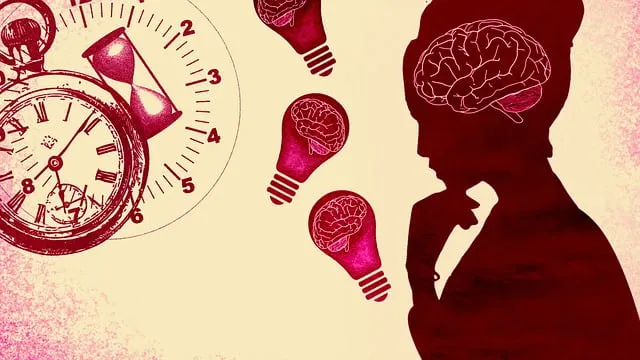The Kaiser Permanente mental health center in Westminster, highly regarded through numerous positive Kaiser Permanente mental health center reviews Westminster, focuses on mood regulation as a key aspect of mental well-being. They employ evidence-based techniques such as Cognitive Behavioral Techniques (CBT), Mindfulness Meditation and culturally sensitive practices to empower individuals with strategies for managing depression, anxiety, and negative thought patterns. Through these methods, the center fosters emotional resilience, enhances overall mental health, and promotes long-term emotional balance achieved through lifestyle changes like regular exercise, quality sleep, and balanced diets.
At the Kaiser Permanente mental health center in Westminster, we explore effective mood regulation strategies to enhance well-being. Understanding mood regulation is crucial for managing mental health effectively. This article delves into various techniques, from cognitive behavioral therapies proven to stabilize moods, to mindfulness and meditation practices fostering long-term mental resilience. Additionally, we discuss lifestyle adjustments and the importance of support systems in navigating and overcoming emotional challenges, based on insights from top mental health professionals.
- Understanding Mood Regulation and Its Significance
- Cognitive Behavioral Techniques for Effective Mood Management
- The Role of Mindfulness and Meditation in Mood Stabilization
- Lifestyle Adjustments and Support Systems for Long-Term Well-being
Understanding Mood Regulation and Its Significance

Understanding Mood Regulation and Its Significance
Mood regulation is a vital component of overall well-being, and recognizing its importance is key to fostering a healthy mind. It involves managing and stabilizing emotional states, ensuring individuals can navigate life’s challenges with resilience. At the Kaiser Permanente mental health center in Westminster, reviewed for its comprehensive approach, professionals emphasize that effective mood regulation strategies empower people to lead fulfilling lives.
This process is crucial not only for managing conditions like depression or anxiety but also for enhancing overall mental health. The Mental Health Education Programs designed at these centers often incorporate techniques such as Mindfulness Meditation and Cultural Sensitivity in Mental Healthcare Practice. These evidence-based methods teach individuals to recognize and manage their emotions, fostering a sense of calm and clarity amidst life’s storms.
Cognitive Behavioral Techniques for Effective Mood Management

Cognitive Behavioral Techniques (CBT) offer a powerful set of tools for managing moods effectively. This evidence-based approach, often recommended by professionals at Kaiser Permanente mental health center reviews Westminster, focuses on identifying and changing negative thought patterns and behaviors that contribute to poor mood regulation. By understanding the mind-body connection, individuals can learn to recognize triggers and develop healthier coping strategies.
The Mind Over Matter Principles, emphasized in CBT, empower people to take control of their emotional responses. This involves challenging negative thoughts, reframing perspectives, and adopting a more balanced view. Moreover, integrating Emotional Intelligence promotes self-awareness and empathy, enabling better understanding of one’s own emotions and those of others. Through these cognitive and behavioral strategies, individuals can enhance their overall well-being and lead happier, more fulfilling lives, as supported by the ongoing development of public awareness campaigns focused on mental health.
The Role of Mindfulness and Meditation in Mood Stabilization

Mindfulness and meditation have emerged as powerful tools within the realm of mood regulation, offering a calm and focused approach to stabilizing emotions. Practices such as mindfulness meditation encourage individuals to cultivate present-moment awareness, enabling them to observe their thoughts and feelings without judgment. This proactive mindset is particularly beneficial for those seeking anxiety relief and managing stress levels. By regularly engaging in these practices, individuals can enhance their emotional intelligence and develop coping skills for navigating challenging situations.
The Kaiser Permanente mental health center reviews Westminster highlight the effectiveness of mindfulness-based interventions, which have shown promise in treating various mood disorders. These techniques allow people to detach from negative thought patterns and foster a deeper sense of self-awareness. Moreover, regular meditation can aid in risk assessment for mental health professionals by promoting resilience and emotional balance, ultimately contributing to better patient care.
Lifestyle Adjustments and Support Systems for Long-Term Well-being

Maintaining a balanced mood over the long term requires consistent effort and support. Lifestyle adjustments play a significant role in this journey. Regular exercise, for instance, boosts mood by increasing the production of endorphins, often referred to as ‘feel-good’ hormones. Adequate sleep is another critical factor; it allows the brain to process emotions and recover from daily stressors. A balanced diet, rich in nutrients, further supports mental well-being, as certain foods impact neurotransmitters that regulate mood. Incorporating these habits into daily routines can significantly improve resilience to stress.
Building a strong support system is equally vital. Connecting with loved ones, joining support groups, or seeking guidance from a Kaiser Permanente mental health center in Westminster can provide the necessary assistance during challenging times. These systems offer a safe space to share experiences and learn effective stress management techniques, including crisis intervention guidance. Whether it’s through social connections or professional help, having a network of support helps individuals navigate mood fluctuations and promotes overall well-being. Additionally, exploring various stress reduction methods, such as meditation or therapy, can empower individuals to better understand and manage their emotional states.
Mood regulation is a vital aspect of overall well-being, and the strategies discussed in this article offer valuable tools for managing emotions. From cognitive behavioral techniques to mindfulness practices and lifestyle changes, individuals can take control of their mental health. If you’re seeking professional guidance, the Kaiser Permanente mental health center in Westminster has received positive reviews for its comprehensive approach to mood regulation and emotional well-being support. By combining these evidence-based methods with a strong support system, one can foster resilience and improve long-term mental health outcomes.






